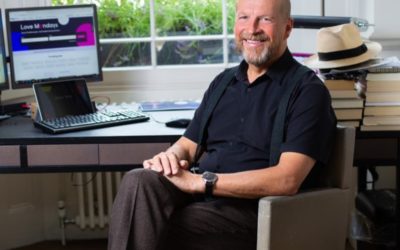As we know, it’s twice as hard to find paid, sustainable work if you are disabled than if you are non-disabled. Here are my top tips for finding work:
1. Identify your strengths
If you are trying to sell a car, you need to know the good points (features and benefits) of what you are selling. It’s the same if you are trying to sell yourself to a prospective employer. Think about all the skills, strengths, experience, knowledge, qualities and personality traits you have that would be attractive to an employer. Focus on what you can do, and enjoy doing.
2. How can you use those strengths?
Think about how you could use those strengths if you had the right adjustments. What jobs could you do with your skill set and experience? There may be a number of different types of job you could apply for in different sectors. Think of a few options to widen your search.
3. Gaining confidence
It’s important for you to have confidence in your skills and abilities, because if you don’t, why would a potential employer? There are many ways to increase your confidence, but recognising that you are a premium candidate can often help!
4. Searching for jobs
Employers advertise their roles in a number of different places – job boards, magazines, recruitment agencies, job fairs and even the radio. You need to look in all of these places, but especially specific disability media like PosAbility Magazine, and specialist job boards like Evenbreak.
5. Be pro-active
As well as responding to job adverts that you see in any of the media above, it’s often worth approaching organisations you would like to work for and sending in a speculative CV. Then follow-up, once a month or so with a quick email or telephone call to see if anything suitable has come up.
6. Use social media
Have a good profile on LinkedIn, showcasing your skills and experience. Many recruiters now are looking for candidates rather than advertising their jobs, and if you aren’t there, they can’t find you!
7. Emphasise your strengths
When writing CVs or application forms, focus on the strengths you have that mean you could do the job well. They are looking for the best candidate, and you need them to realise that is you! It may not be necessary to mention your impairment on your CV, especially if it doesn’t affect your work performance. However, if they are actively trying to attract disabled candidates, or if they offer guaranteed interviews to disabled people, it may be worth mentioning.
8. Attending interviews
Make sure you take lots of examples with you about why you are the best person for the job. Talk about similar roles you’ve done before (even if in a voluntary capacity). If your impairment isn’t visible you may still decide not to mention it, but it will depend on the role and your background. Most importantly, make sure they know you have all the skills and qualities they are seeking for this job.
9. Discussing disability
Again this will vary depending on the role, the impairment and the attitude of the employer. It could well be that being disabled is a positive as you will have learned extra skills. In order to navigate our way around a world not designed for us, we constantly have to develop skills like problem-solving, overcoming obstacles, creative thinking, innovation, persistence and determination. Or you may use assistive technology that makes you faster and more accurate than your colleagues. These can be attractive qualities to an employer. If you require adjustments, ask for them in a positive way (e.g. ‘I would perform even better with …’).
10. Allaying their fears
Access to Work will provide you with a letter to a potential employer, detailing what reasonable adjustments you might need (if any) and explaining how they might pay some or all of the costs. This can reassure employers that you won’t need them to spend lots of money on you.
And a bonus tip – whenever you can, seek feedback if you are unsuccessful. Often, they won’t give it, but if they do it can be useful to learn how to do better next time.
If you need any support with any of the above ten actions, please visit the Career Hive – relevant and accessible support for disabled candidates, delivered by disabled careers professionals.
Good luck with your job search! It requires persistence and patience, but is well worth it when you finally get that dream job!







